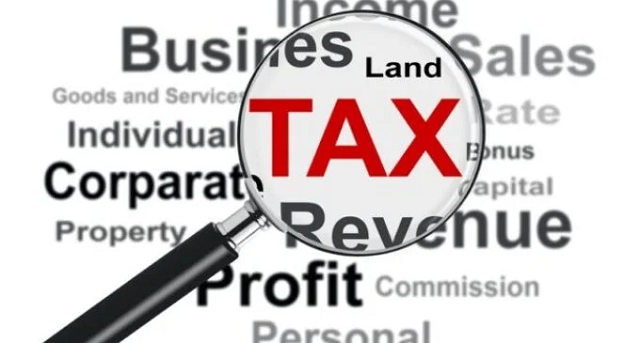By Bizwatch Nigeria Limited,Boluwatife Oshadiya
Copyright bizwatchnigeria

Nigeria’s new tax reforms—set to kick off on January 1, 2026—are a game-changer for individuals, entrepreneurs, and even crypto investors. The days of automatic tax reliefs are gone; instead, the government is nudging Nigerians toward structured investments like retirement accounts, housing funds, and insurance policies.
If you’re wondering how this affects your salary, your business, or that shiny Bitcoin in your wallet, let’s break it down—listicle style.
1. The Zero-Tax Threshold Just Got Clearer
If you earn below ₦800,000 annually, you won’t pay a kobo in personal income tax. That’s a relief for students, low-income earners, and freelancers still building their portfolios.
For businesses, it’s equally generous. Companies with an annual turnover of less than ₦50 million are exempt from corporate income tax. But hold on—don’t think that means you’re completely tax-free. VAT and electronic transfer levies still apply. It’s like getting a “welcome to the economy” pass, but you’ll still feel a few light taps from the taxman.
2. Tax Relief Is No Longer Automatic
Here’s the twist: under the current regime (till December 31, 2025), everyone gets an automatic relief—20% of gross income plus ₦200,000 (or 1%, whichever is higher). From January 2026, that cushion disappears unless you actively make qualifying investments.
So, instead of sitting back and waiting for relief, you’ll now have to show proof. The government wants you to invest in your future before cutting you a tax break
3. What Counts as Tax-Deductible Investments?
Not everything qualifies, but here’s where you can legally reduce your tax bill:
Retirement Savings Account (RSA): Contributions are tax-free, growth is tax-free, and withdrawals stay tax-free.
Life Insurance Premiums: For you and your spouse, these are deductible.
National Health Insurance Scheme (NHIS): Contributions qualify.
National Housing Fund (NHF): Also deductible.
Rent Payments: You get 20% relief on rent paid, capped at ₦500,000.
In short, the government is rewarding long-term financial planning.
4. Everyday Scenarios That Clarify the Law
Let’s walk through a few relatable examples:
Case 1: Your uncle sends you $100 (about ₦100,000). Do you pay income tax? No—because it’s under the ₦800,000 threshold. But VAT and transfer levies still bite.
Case 2: You buy Bitcoin with ₦100,000 and flip it for ₦200,000. Profit? ₦100,000. Tax? None—still below the ₦800,000 line.
Case 3: Same Bitcoin trade, but this time you sell for ₦2 million. Profit? ₦1.9 million. Tax? Yes—you crossed the threshold.
Case 4: Do the same trade through your registered company with turnover below ₦50m? No income tax. But VAT and levies remain due.
This makes the distinction between personal and business taxation clearer than ever.
5. Crypto Gets the Spotlight
Crypto investors—this reform speaks directly to you.
Holding assets? No tax.
Selling at a loss? No tax.
Selling at a profit? Taxable if your gain pushes you above ₦800,000.
Staking income? Taxable—since it counts as earnings.
In practice, if you’re casually trading small amounts, you’re safe. But serious traders with big profits? You’re firmly on the taxman’s radar.
6. Banking, Bonds, and Insurance—How They Fit In
The reforms also touch traditional finance:
Bank Deposits: No tax on balances. But if your savings account earns 10% interest on ₦1 million, that interest (₦100,000) is taxable.
Bonds: Federal Government bonds remain tax-exempt. A rare freebie.
Insurance Policies: Premiums you pay are deductible.
Inheritance or Gifts: Generally tax-free, unless they generate income later.
Think of it this way: the government isn’t chasing your assets; it’s chasing the money your assets make for you.
7. Practical Tips to Stay Ahead
Now the million-naira question: what should you actually do?
Get advice early: Pool funds with friends or colleagues and pay a tax professional to brief your group. Think of it as a “tax cooperative.”
Go digital: Keep receipts, scan documents, and prioritize card transactions over cash. An audit trail can save your skin.
Hire an accountant: Especially if you run a business. Compliance is cheaper than penalties.
Don’t mix transactions: Avoid dropping non-business checks into your business account. It can trigger unnecessary scrutiny.
Remember, the principle is simple: you’re taxed on what you earn, not what you own.
Final Thoughts
The 2026 reforms look less like punishment and more like persuasion. Nigeria is pushing citizens toward structured investments, savings, and accountability. For some, that feels like a burden. For others, it’s an opportunity to build financial discipline.
Whether you’re a crypto enthusiast, a small business owner, or just someone hustling to stay afloat, the new law will touch your wallet. The smart move? Start planning before January 2026.



